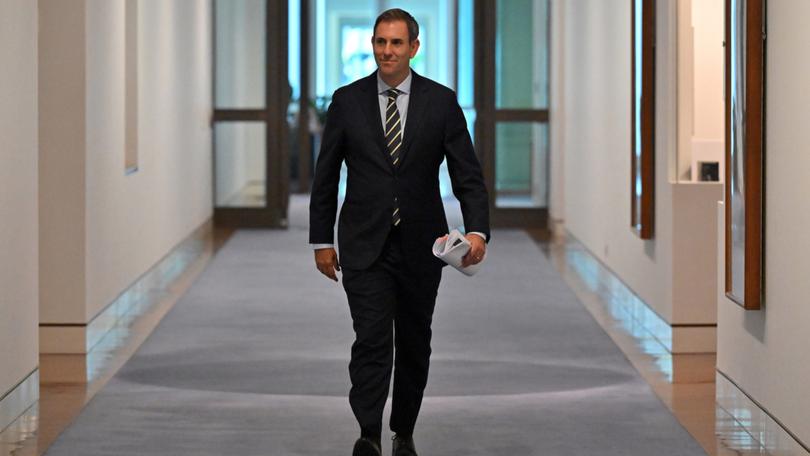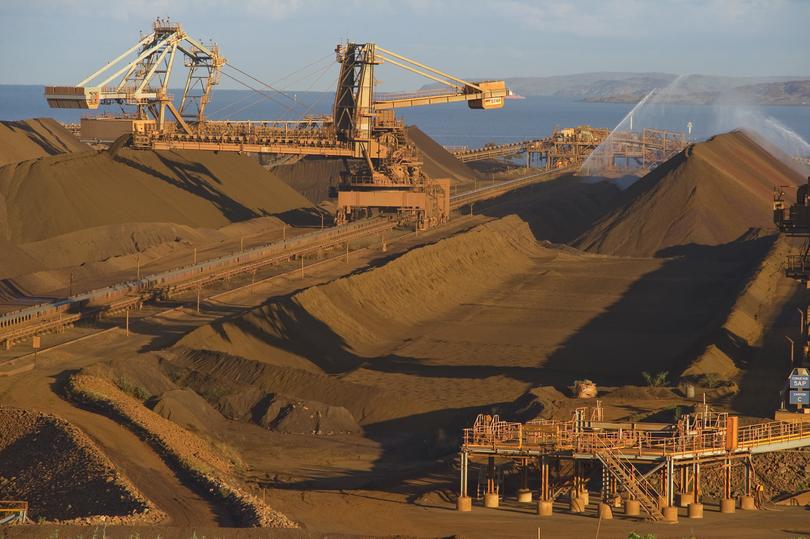Editorial: Hey Treasurer, how about a shout out for mining?
Mining will continue to do much of the heavy lifting in propping up the Australian economy. But even the most robust and resilient industries has its limits.

When releasing the latest national accounts figures this week, Treasurer Jim Chalmers was at pains to emphasise that we should be thankful to see any growth at all, even if it was by an almost negligible 0.2 per cent in the December quarter.
After all, other advanced economies, such as Japan and the UK, went into recession last year. About a quarter of G20 economies recorded technical recession or only very narrowly avoided doing so. China wasn’t looking crash-hot either.
A win’s a win, was the vibe. Even though it’s hard to call it a win, because when you take into account population growth, the economy actually shrunk in the December quarter.
Sign up to The Nightly's newsletters.
Get the first look at the digital newspaper, curated daily stories and breaking headlines delivered to your inbox.
By continuing you agree to our Terms and Privacy Policy.It was clear who Mr Chalmers blamed for the troubling numbers. The Reserve Bank, and its decision to hit Australians with yet another interest rate rise right in the middle of the quarter.
It has become apparent that that was one rate rise too many. Mortgage pressure means households are spending less on discretionary items (which was the RBA’s goal all along, and in doing so they’ve sent the economy screeching to a halt).
So while we know who the villain in the piece is, who is to thank for keeping the economy on just the right side of the recession divide?
You wouldn’t know to listen to Mr Chalmers go through the numbers.
But a glance at the books is revealing. Strong international demand for iron ore and coal, as well as higher production lifted mining profits by 9.2 per cent.
Outside of the mining sector, profits fell 0.6 per cent across the quarter.

Without mining, Mr Chalmers wouldn’t have any growth at all to crow about — however insipid.
With the so-called inflation dragon mostly tamed Mr Chalmers is switching his policy focus to stimulate growth.
But changing course from inflation-fighting mode will be tough.
Business confidence remains weak.
And little wonder.
The Government seems intent on doing all it can to make Australia a painful place to do business.
Labor’s wide-ranging industrial relations reforms will act as an anchor on productivity, weighing business activity down at a time we should be looking for agility.
BHP warned the new “same job, same pay” laws will put 4500 jobs in jeopardy and its $300 million FutureFit trainee program on shaky ground. That’s 4500 jobs — from a single employer.
And the “right to disconnect” laws are likely to affect all businesses once bellicose unions force the first test cases through the Fair Work Commission.
The Government is intent on adding layer after layer of onerous regulation at a time other nations are rolling out the welcome mat to investment in an effort to get their economies moving.
If there is a cheaper, more stable option elsewhere, investors won’t hesitate to walk.
Mining will continue to do much of the heavy lifting in propping up the Australian economy. But even the most robust and resilient industries has its limits.
Responsibility for the Editorial comment is taken by Editor-in-Chief Anthony De Ceglie.
